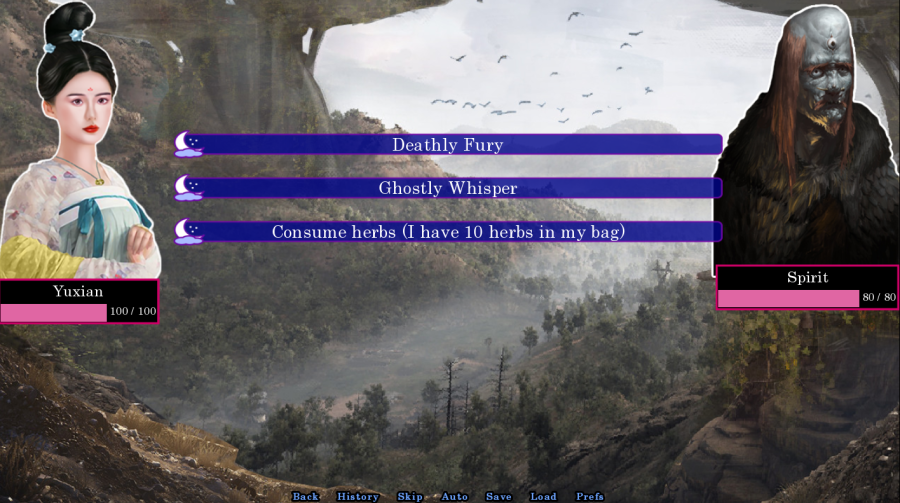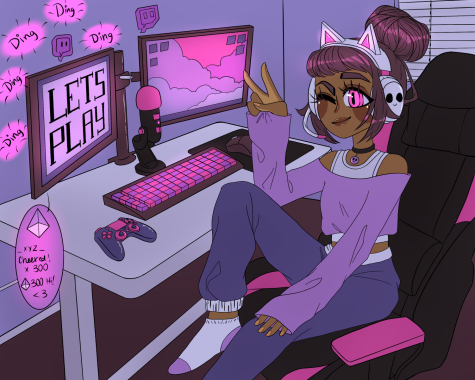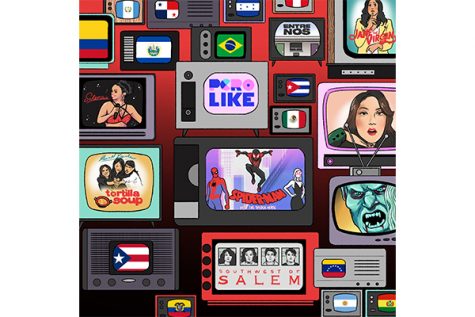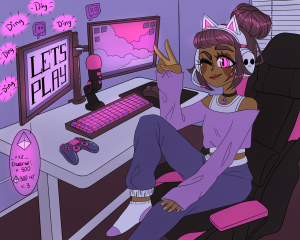UT student develops game celebrating Asian culture, empowering women
March 27, 2022
Kathy Liang noticed an issue with many mainstream video games during the summer of 2020: They tokenized Chinese culture and made women side characters. This inspired Liang to create her own free-to-play game that’s expected to be released later this year.
“In a lot of media, we see women as more peripheral characters whose spotlight has usually been stolen by men,” said Liang, a mathematics and computer science junior. “So I (wanted) to have a group of women that can be the center of power, and people can look at them as heroes.”
Liang began developing “The Legend of the Demon Slayer” after reading biographies of people from East Asia and noticing inaccuracies in the ways the media represented these cultures. Liang said the game is a visual novel that gives choices to the player and will feature a cast of strong, independent female characters who fight demons while pursuing friendship and love in the sixth-century Tang dynasty of China.
“There’s so much hatred, racism and prejudice in the world,” Liang said. “Our main character, she’s trying to slay those demons.”
Along with the Chinese culture in the game, the game expands into India, Iran and Ghana and includes music that is representative of these nations, a feature Liang said she incorporated to promote inclusivity for a variety of different cultures. Liang said the project also includes puzzle games and combat systems.
Mathematics freshman Regina Zhou said that in her past experiences playing video games, she would feel uncomfortable with the characterization of female characters as weak and dependent upon men. Zhou said “The Legend of the Demon Slayer” made her feel more comfortable as the main female characters control their own fate.
“In the beginning (of the game) there’s a choice that an independent female would make without being dependent on family or males,” Zhou said.
Zhou, who was born in China, said that the game does a good job of representing Chinese culture well, especially through its architectural designs.
Professional voice actor Liam Bixby, who voices one of the male characters, said this project offers a more accurate representation of Chinese culture that is not reliant upon stereotypes, a trap that other video games can fall into.
Bixby said many mainstream video games tokenize Chinese culture when they incorporate martial arts, dragons or emperors. Liang’s game focuses more on the characters themselves, Bixby said, which makes the game more relatable for Chinese players.
“(The game shows that) Asian people from the West aren’t some crazy Kung Fu fairing type people that are so heavily portrayed in the media,” Bixby said. “We’re human beings that have issues.”
Liang said the game currently has nine UT student contributors and various other domestic and international contributors. All of the developers, writers, artists and voice actors joined the project on a volunteer basis and met virtually this summer to create a final project, which they are still tweaking, Liang said.
Liang said she developed a writing team composed entirely of women so they could create independent female characters who are representative of actual women.
“It’s important to have a project that women make for women, because people usually — especially male game (developers) — will have a lot of unrealistic expectations for female characters,” Liang said. “I feel like that’s very unhealthy, (and) it can have negative impacts for players.”







